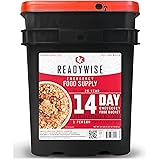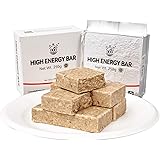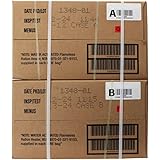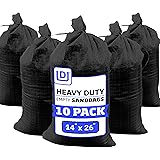Table of Contents
- Embracing Urban Farming
- Learning Basic DIY Skills
- Financial Independence Strategies
- Practicing Mindful Consumption
Embracing Urban Farming
Starting Small
When it comes to urban farming, there’s no need to go all out right away. Start with something simple like a windowsill herb garden. This will give you a taste of what it’s like to grow your own food.
I began with just a couple of basil and mint plants in my tiny apartment. It was amazing how quickly they flourished!
Before you know it, you’ll be adding fresh herbs to your meals, saving money and trips to the store.
Community Gardens
Another great way to dive into urban farming is by joining a community garden. These shared spaces allow you to grow your own veggies and fruits with the support of other local gardeners.
Trust me, the camaraderie and exchange of tips are invaluable. Plus, you get to share in the surplus produce.
You don’t need a lot of experience to start. Most community gardens have seasoned gardeners who are more than willing to help you get your hands dirty.
Utilizing Vertical Space
In urban settings, space is often a constraint. But don’t let that discourage you! Utilizing vertical space is a game-changer.
Try using hanging planters, vertical garden systems, or even simple shelves to make the most of your space.
== > What if ... Get a FREE Subscription to PREPARE
I’ve seen people grow entire salads from their balcony. It’s all about creativity and making the best out of what you’ve got.
Learning Basic DIY Skills
Home Maintenance
Let’s face it, things are bound to break around the house. Knowing basic home maintenance skills can save you a lot of money and make you feel more self-sufficient.
Start small with tasks like fixing a leaky faucet or replacing a light switch. YouTube is your best friend here!
I’ve found that every small repair boosts my confidence and equips me with more skills to tackle bigger tasks.
Car Repairs
Wouldn’t it be great not to worry about car troubles? Basic car repair skills can go a long way towards self-reliance.
Start with simple things like changing your oil, rotating tires, or replacing air filters. Again, online tutorials are super handy for beginners.
I started with changing my own oil, and now I can handle things like brake replacements. It’s a real game-changer.
DIY Projects
There’s immense satisfaction in completing a DIY project, whether it’s building a piece of furniture or crafting something useful for the home.
Focus on what interests you – woodworking, sewing, or even electronics. The skills you gain are invaluable and often transferrable to other areas of life.
For me, building a simple shelf was the gateway project. Now, my toolkit is one of my most cherished possessions.
Financial Independence Strategies
Budgeting
Financial independence starts with a solid budget. Track your income and expenses meticulously. It might seem tedious, but it’s the cornerstone of financial self-reliance.
Use apps like Mint or even a good old spreadsheet to keep tabs on your spending.
Once I started budgeting, I was amazed at how much I could save just by being more aware of where my money was going.
Investing
Investing is crucial for growing your wealth and securing financial independence. Start by educating yourself on the basics of stocks, bonds, and mutual funds.
There are plenty of resources online and even beginner-friendly apps like Robinhood or Acorns that can help you get started.
I was hesitant at first, but as I learned more about investing, I realized it wasn’t as intimidating as it seemed. Now, I’m more in control of my financial future.
Multiple Income Streams
Diversifying your income streams can provide financial stability and independence. Think about freelancing, side gigs, or even passive income through investments.
The gig economy offers numerous opportunities to earn extra cash, from ride-sharing to freelance writing.
Personally, I started with a small side hustle, and now I enjoy multiple income streams that add to my financial security.
Practicing Mindful Consumption
Reducing Waste
To be self-reliant, it’s important to minimize waste. Start by being conscious of your consumption and looking for ways to reduce, reuse, and recycle.
Simple habits like using reusable bags, bottles, and containers can make a big difference.
I found that the less waste I produce, the more sustainable my lifestyle becomes. Plus, it’s a great way to save money.
Buying Local
Supporting local businesses not only strengthens your local economy but also reduces your carbon footprint.
Farmers’ markets are a great place to start. You get fresh, high-quality produce while supporting local farmers.
I’ve developed a strong relationship with vendors at my local market, and it feels good to know where my food comes from.
Minimalism
Practicing minimalism is about focusing on what truly adds value to your life and letting go of what doesn’t.
Declutter your space and make mindful decisions about what you bring into your home.
Since embracing minimalism, I find that I’m happier and less stressed. It’s amazing how much lighter you feel without all that extra stuff weighing you down.
Frequently Asked Questions
1. Can I really be self-reliant without moving to the countryside?
Absolutely! Urban farming, learning DIY skills, and financial independence are all ways to achieve self-reliance without leaving the city.
2. How much space do I need to start urban farming?
Surprisingly, not much! Even a small balcony or windowsill can be enough to start growing herbs and small vegetables.
3. Is it expensive to become self-reliant?
Initial costs might be there, but in the long run, you save a lot. Growing your own food, fixing your own home, and budgeting efficiently can all save money.
4. Where can I learn basic DIY skills?
YouTube is a fantastic resource, along with DIY blogs and community workshops. Hands-on practice is the best way to learn!






